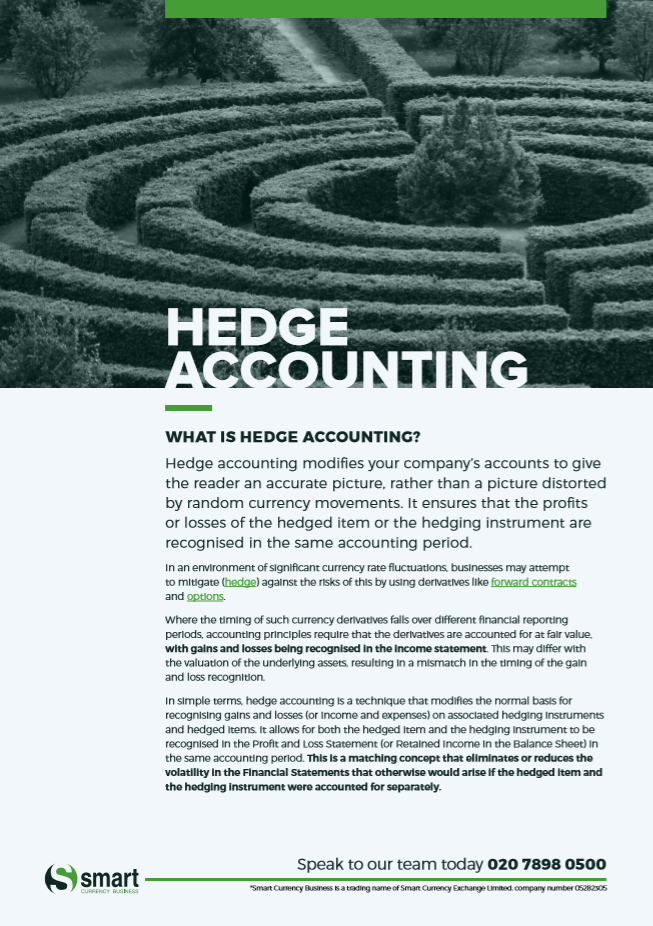Hedge Accounting
Hedge accounting modifies your company’s accounts to give the reader an accurate picture, rather than a picture distorted by random currency movements. It ensures that the profits or losses of the hedged item or the hedging instrument are recognised in the same accounting period.
In an environment of significant currency rate fluctuations, businesses may attempt to mitigate (hedge) against the risks of this by using derivatives like forward contracts and options.
Where the tenor of such currency derivatives falls over different financial reporting periods, accounting principles require that the derivatives are accounted for at fair value, with gains and losses being recognised in the income statement. This may differ with the valuation of the underlying assets, resulting in a mismatch in the timing of the gain and loss recognition.
In simple terms, hedge accounting is a technique that modifies the normal basis for recognising gains and losses (or income and expenses) on associated hedging instruments and hedged items. It allows for both the hedged item and the hedging instrument to be recognised in the Profit and Loss Statement (or Retained Income in the Balance Sheet) in the same accounting period. This is a matching concept that eliminates or reduces the volatility in the Financial Statements that otherwise would arise if the hedged item and the hedging instrument were accounted for separately.
The document answers the following questions:
What is Hedge Accounting?
A straightforward explanation of what Hedge Accounting is, how it should be used and the benefits to your business.
Can your business use hedge accounting?
Depending on whether your business is reporting under full International Financial Reporting Standards (IFRS) or FRS 102 (The Financial Reporting Standard applicable to UK businesses who have chosen not to apply IFRS or the reduced disclosure Frameworks of FRS 101 and 105) there are different requirements.
When does a hedge become ineffective?
An effective hedge is one in which the change in fair value, cash flow, or net investment is exactly offset by changes in the hedging instrument. We explain how a hedge can become ineffective, and how this should be avoided.
An example of Hedge Accounting
Our four-page document also includes a clear example of Hedge Accounting, complete with detailed journal entries and a summary of the entries included, illustrating the possible outcomes and benefits.
Whilst a complex process, the application of hedge accounting will significantly reduce volatility in the financial statements. This volatility would otherwise arise if the hedged item and the hedging instrument were accounted for separately. With hedge accounting, statements reflect better and more accurately how foreign currency risk is managed.
If you would like more information on Hedge Accounting, please download our free, four-page document.


 020 7898 0500
020 7898 0500